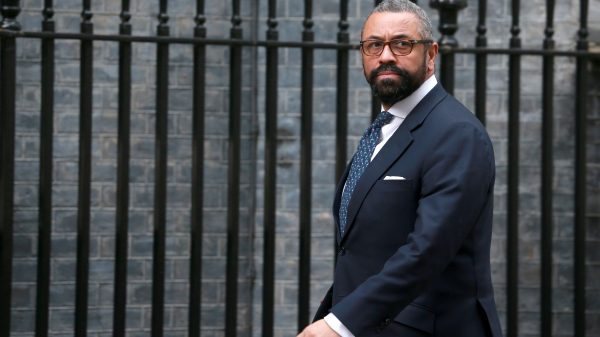Chancellor Jeremy Hunt revealed that the UK will avoid a “technical recession” in 2023 in today’s Spring Budget, as he set out the next stage of the government’s plans to help the UK back into growth.
Today’s announcement – dubbed the ‘budget for growth’ – also focused on boosting economic growth and reducing debt while addressing the ongoing cost-of-living crisis, as it forecast that inflation will more than halve over the coming 12 months.
The UK economy is expected to shrink by 0.2% this year, narrowly avoiding a “technical recession” although the majority of households will still be worse off than they were a year ago. It is also forecast to grow by 1.8% in 2024 and 2.5% in 2025, according to the Office for Budget Responsibility.
Hunt’s first budget saw him setting out government spending and taxation plans with the bold aim of “supercharging growth” across the UK, despite contending with spiralling energy costs, continued economic uncertainty and mass industrial action over pay.
Here are the key takeaways from this year’s budget for the UK grocery industry…
Inflation: fall to 2.9% by end of 2023
A headline figure for this year’s spring budget, Hunt revealed that – according to the Office for Budget Responsibility – inflation is forecast to fall to 2.9% by the end of this year.
Currently at 10.1%, the rate of inflation has seen businesses and consumers struggling with rising costs and inflated prices. However, this rate of price rises is set to slow by more than had originally been predicted this year, taking it closer to the Bank of England’s 2% target.
Grocery price inflation remains significantly higher than the rate of inflation, at 17.1%. Kantar data has shown that the food and drink prices is the second most important financial issue for the public behind energy costs, above public sector strikes and climate change.
Hunt described high inflation as being a “root cause” of the strike action currently affecting many industries in the UK, including the grocery sector. He said the government will work hard to settle those disputes “in a way that does not fuel inflation”.
Subscribe to Grocery Gazette for free
Sign up here to get the latest grocery and food news each morning
Business: corporation tax and full expensing
The chancellor announced a £27 billion tax cut for business through a radical ‘full expensing’ policy and capital allowances reform which is expected to drive investment and growth.
Full expensing of capital expenditure for the next three years will be welcome news for consumer products and retail businesses, who will be able to claim 100% capital allowances on qualifying investments until the end of March 2026.
Full expensing essentially allows companies to write off the cost of investment in one go and, for every pound a company invests, its taxes are cut by up to 25p. The chancellor said the new policy was equivalent to a corporation tax cut worth around £9bn a year.
This is expected to partially offset April’s controversial rise in corporation tax, from 19% to 25%, which is still going ahead. Businesses that make an annual profit of more than £250,000 will pay this increased rate – although this is expected to affect just 10% of UK businesses.
Most UK supermarkets will fall into this bracket.
Food and Drink Federation (FDF) CEO Karen Betts said: “From a food and drink business point of view, it’s good to see the announcement of full expensing – this is a welcome boost to businesses investing in technology across our sector, and supports increased productivity.
“We also welcome the decision to extend the current climate change agreements for two years. This provides certainty for businesses as they invest in energy efficiencies, and time to design a smart replacement scheme.”
Fuel duty: remains frozen
The chancellor said that fuel duty has been frozen for a further 12 months, extending the temporary 5p fuel duty cut which had been set to expire this April. The chancellor also confirmed that fuel duty will not increase in line with inflation.
AA head of roads policy Jack Cousens said the association was “pleased the chancellor has listened to the AA and frozen fuel duty.
“Not only will this save drivers heavy duty pain at the pump, but it will help keep the price of goods and services down as they are mainly transported by road.”
RAC head of roads policy Nicholas Lyes also welcomed the government’s decision to keep the 5p fuel duty cut in place for another 12 months.
“The cut has given drivers some much-needed relief in what has been the most torrid year ever at the pumps, with price records being broken even after duty was cut,” he said.
“Given the importance of driving for consumers and businesses, duty should be kept low to help fight inflation.”
The cost-of-living crisis: energy bills, pay and work
The budget also included a number of measures intended to help ease the cost of living by cutting taxes on consumer goods, reducing living costs and making it easier to work.
The energy price guarantee – which was due to rise to £3,000 in April – will be frozen at £2,500, saving households £500 a year. However, the budget will also end the £400 government energy bill support scheme; a move which means that, in real terms, monthly bills will continue to rise.
Energy charges for prepayment meters will be also brought into line with prices for customers paying by direct debit, meaning those households will no longer be charged more to receive their energy.
A number of childcare measures were also introduced to help parents get back into work, with free childcare for working parents expanded to cover all children under five by September 2025.
Retail Trust CEO Chris Brook-Carter said today’s budget should “go some way to reassuring anyone worrying about rising energy bills, or having to cope with sky-high childcare costs”.
“The government’s plans to provide more support to those who might be forced to leave their job because of a mental health or musculoskeletal condition also sends an important message that more should be done to ensure working people get the help they need to protect their health and wellbeing,” he added.
The FDF’s Karen Betts said the measures announced to encourage people back into work were “timely”, but also pointed out that the “sector needs more help”, as vacancies in food and drink manufacturing are currently double the national average.
She suggested that hands-on apprenticeship support for SMEs would have helped ensure labour shortages don’t affect the resilience of the UK’s food and drink supply chain.
Retail trade union Usdaw went even further, describing the budget as a “missed opportunity to tackle insecure and low-paid employment”.
“Workers desperately need a new deal on employment rights and incomes,” said general secretary Paddy Lillis, who has been calling for an immediate £12 per hour minimum wage for all workers, regardless of age, as a step towards £15 per hour minimum wage.
Lillis had been calling for an end to “one-sided flexibility”, along with tackling insecure employment models such as zero and short hours contracts to provide retail workers with financial security.
Alcohol duty: freeze
A budget announcement which the chancellor referred to as the “Brexit pubs guarantee” will see the duty on draught products in pubs up to 11p lower than the duty in supermarkets from August.
Alcohol duties will still rise with inflation, while the based on a drink’s alcoholic strength will also be reformed. Industry figures have warned the budget changes could mean a 20% increase in tax on drinks including red and white wine, adding as much as 44p to an average bottle.
Last updated at 16:57pm, 15 March 2023










